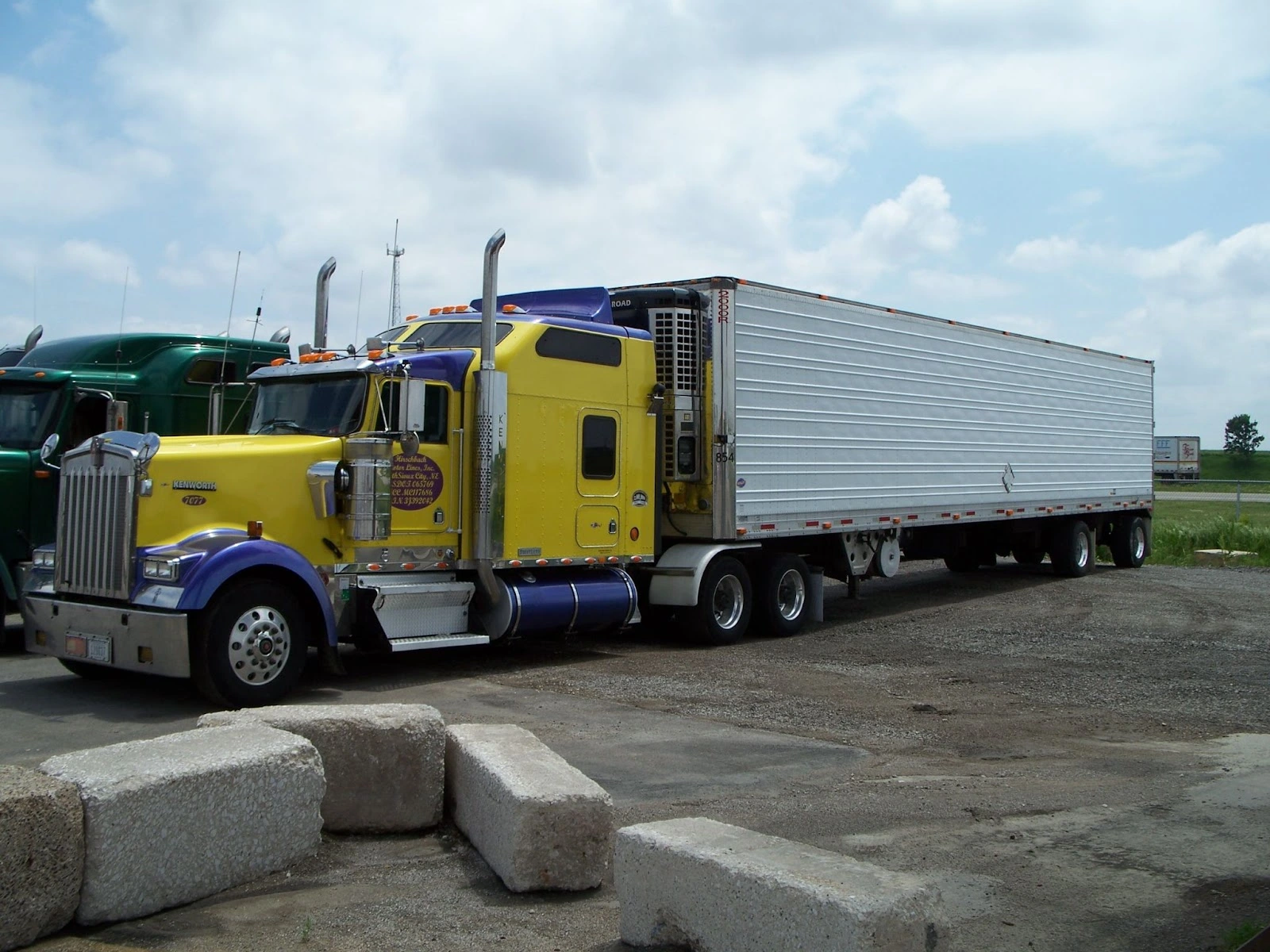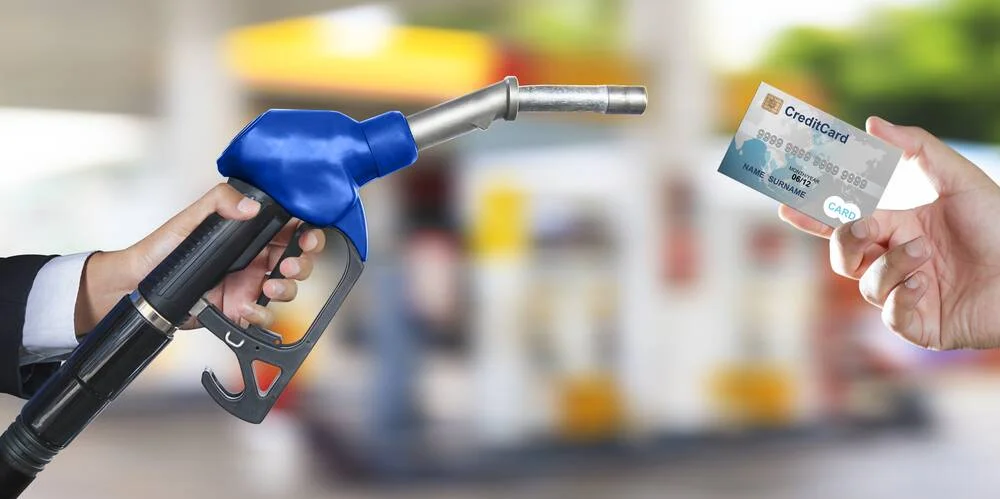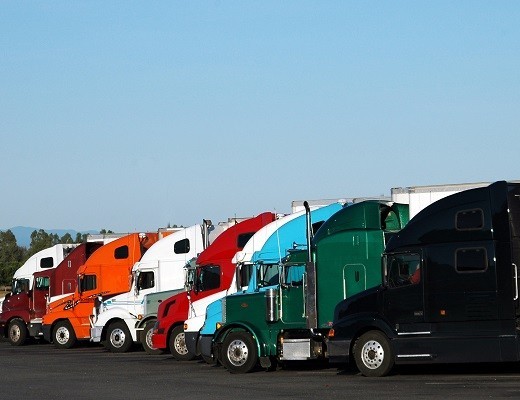

Diesel Trucks vs. Gasoline Trucks — Which Is Right For You?
When delving into the realm of launching a transportation company, the choice of vehicle to invest in emerges as a pivotal determinant. A plethora of distinguishing factors contribute to the varying suitability of one truck over another. Before embarking on your journey, it’s imperative to discern the merits and demerits of diesel trucks versus gasoline trucks, enabling a judicious selection. Indeed, both vehicle variants offer distinctive advantages tailored to specific types of haulage.
- What is the difference between diesel vs. gasoline vehicles?
-
The Pros and Cons of Diesel Trucks
- Advantages:
- Drawbacks:
-
The pros and cons of gasoline vehicles
- Pros:
- Cons:
- Which is better — diesel or gasoline?
- Find the right loads with Logity Dispatch
A common misconception among novice drivers is the presumption that diesel engines excel in long-haul journeys. This misconception likely arises from the reputation of diesel engines for possessing enhanced torque, a quality conducive to transporting hefty cargo. However, does this imply that d-fuel vehicles universally outshine their petrol counterparts? Not necessarily.
While it holds true that d-fuel engines generally exhibit superior torque compared to their gasoline counterparts, certain transportation tasks actually fare better with less torque, capitalizing instead on the heightened horsepower characteristic of petrol engines. To gain a more comprehensive understanding, let’s delve deeper into the merits and demerits of d-fuel vehicles versus gasoline vehicles, facilitating a well-informed decision regarding the apt engine choice for your specific needs.
What is the difference between diesel vs. gasoline vehicles?
The primary distinction between diesel and petrol trucks is their engine designs. These two categories rely on distinct fuel types tailored to their respective engine mechanisms, each employing separate methods for igniting fuel. Nonetheless, the availability of both diesel fuel and petrol at virtually every fuel station renders both options entirely viable for professional drivers. Diesel fuel for trucks and gas for trucks can be readily found.
At a fundamental level, the operational principle shared by d-fuel and gasoline engines is the generation of controlled explosions through the interplay of hot air and fuel. These controlled detonations yield sufficient energy to set pistons in motion, propelling the vehicle. However, delving deeper reveals noteworthy disparities between d-fuel and petrol.
Gasoline engines engender a blend of air and petrol within the combustion chamber, compressing the mixture until it reaches a highly combustible state. Subsequently, a spark plug triggers ignition, resulting in a chamber explosion that propels the piston and impels the vehicle forward. In contrast, d-fuel engines dispense with spark plugs; instead, they raise the air temperature via high compression, followed by direct fuel injection into the heated air. This approach initiates a combustion reaction sans the need for a spark.
Although these concepts appear somewhat analogous, the differences between d-fuel vehicles and petrol vehicles abound, conferring distinct qualifications for various work scenarios.
The Pros and Cons of Diesel Trucks
Despite the relatively high per-gallon fuel costs, diesel engines have earned a reputation for their robustness and reliability. These engines excel in high-volume towing and long-distance driving, yet certain drawbacks can make d-fuel a less efficient alternative than gasoline. The pros and cons of diesel trucks include:
Advantages:
- Enhanced Fuel Efficiency: Despite the higher cost per gallon of diesel fuel in comparison to petrol, diesel vehicles offset this expense and more through superior fuel efficiency. Diesel fuel’s higher energy density per gallon equips d-fuel engines with the additional torque required for their operation, resulting in better fuel economy, especially when handling heavy loads.
- Fuel Variety: Best diesel fuel can offer a wider array of choices, including biodiesel, an environmentally friendly alternative.
- Longevity: Diesel engines generally outlast petrol engines due to their capacity to endure higher compression ratios, resulting in greater durability.
Drawbacks:
- Higher Maintenance Costs: While d-fuel vehicles may deliver better fuel economy than their gasoline counterparts when bearing comparable loads, this doesn’t necessarily translate to lower operational costs for d-fuel vehicles.
- Inefficiency with Light Loads: Diesel engines may not be the most efficient option for hauling less-than-truckload (LTL) loads. Gasoline engines with higher horsepower and lower torque can actually be more efficient and cost-effective for such scenarios.
The pros and cons of gasoline vehicles
Now, let’s delve deeper into the merits and demerits of petrol vehicles. Petrol trucks, often referred to as gas trucks or gas truck vs diesel truck, boast significant horsepower, ensuring swift startups and generally offering more cost-effective and convenient maintenance routines. However, gasoline trucks also carry certain downsides, including inefficiency, susceptibility to depreciation, and notably reduced efficacy when towing substantial loads. This latter factor might become a pivotal concern, depending on the types of loads you’re transporting. A common example of a petrol vehicle used for hauling loads is the pickup, which is a classic gas truck.
Pros:
- Suitable for Lighter Loads: Gasoline vehicles are a sensible option for transporting lighter loads due to their lighter engine weight and higher horsepower, making them more efficient for short distances and light hauling.
- Easier Maintenance: Maintenance for petrol pickup vehicles is usually more straightforward and cost-effective due to simpler components.
Cons:
- Less Efficient Fuel Consumption: Petrol pickup cars may seem more appealing due to lower per-gallon costs, but d-fuel is often more cost-effective overall due to its efficiency and energy density.
- Lower Average Resale Value: petrol vehicles can depreciate faster than d-fuel trucks, affecting their resale value over time.
Which is better — diesel or gasoline?
In a climate of high inflation and escalating fuel prices, maximizing efficiency in transportation operations is paramount. The choice between a diesel vs gas truck depends on various factors. Comparing d-fuel vs. gasoline trucks reveals a range of considerations, each with its merits and demerits. Diesel trucks tend to offer better fuel economy and greater resale value, especially when it comes to heavy towing. On the other hand, petrol vehicles excel in lighter load scenarios and often have simpler maintenance routines.
If you ask yourself: “Do I need a diesel truck?” let’s summarize the point. Ultimately, deciding between d-fuel and petrol vehicles depends on your business needs and preferences. Both options have advantages and drawbacks, so thoroughly understanding how each fits into your operation is important. For many drivers, the balanced pros and cons of heavy oil vs. petrol vehicles mean that personal preference plays a significant role in decision-making. If you find yourself in this situation, rest assured that conducting thorough research and determining that both options are equally viable will allow you to choose based on your criteria. Whether you’re considering d-fuel or petrol, understanding the key differences between gas and d-fuel is crucial for making an informed decision that aligns with your business goals.
Find the right loads with Logity Dispatch
After you discover the difference between gas and d-fuel trucks and choose your truck, whether diesel or gasoline, Logity Dispatch is your partner in finding top-quality loads at competitive rates. Whether you’re a new owner-operator weighing fuel options or a seasoned pro, trust Logity Dispatch to streamline load discovery, making your ventures more efficient.
Stay ahead in the transportation industry with the Logity Dispatch blog! Whether you’re an owner-operator, carrier, or logistics enthusiast, our blog keeps you informed and empowered.






